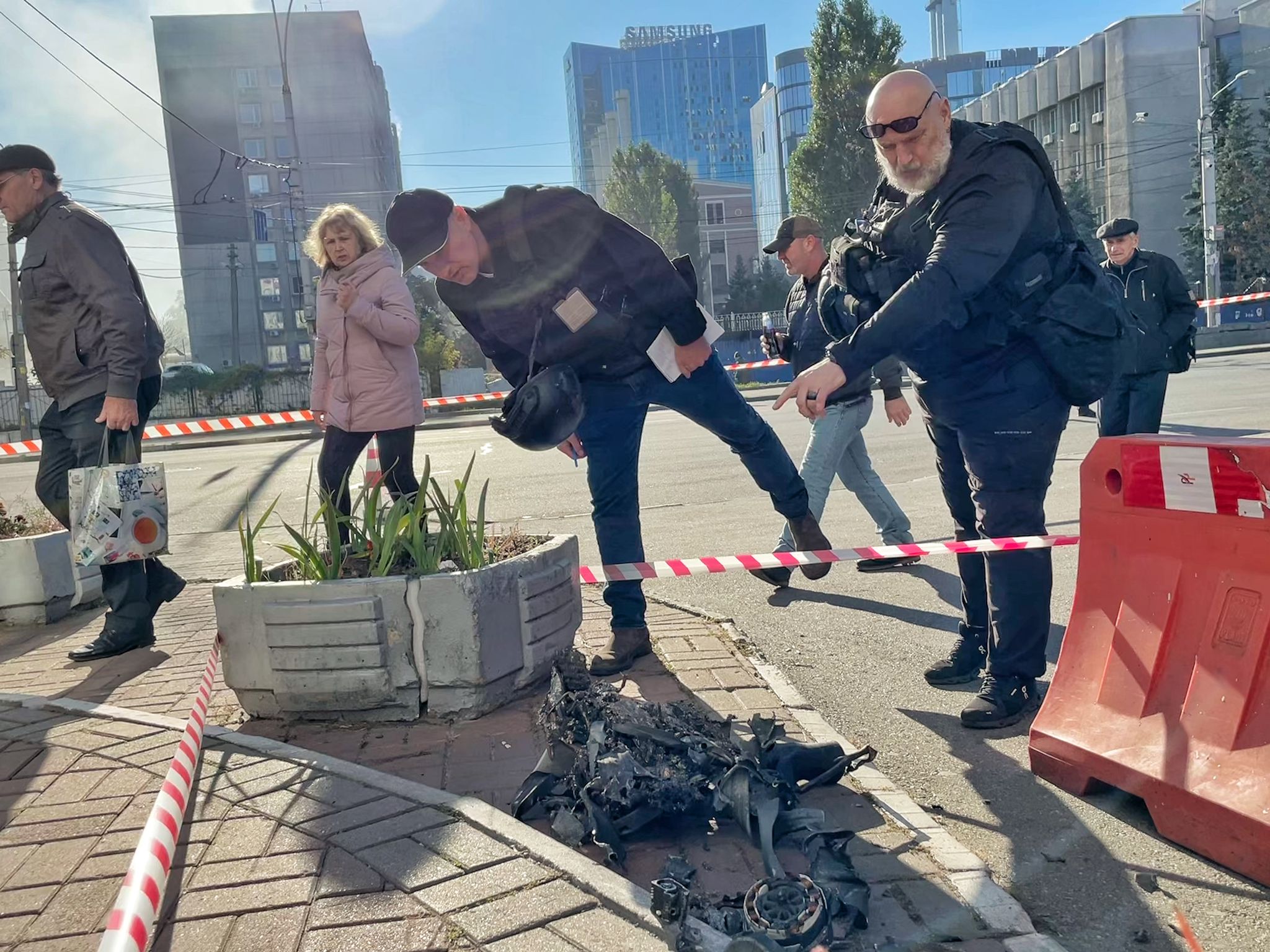Above: Andrew Kramer on assignment (photo courtesy Andrew Kramer)
As a Pulitzer Prize–winning reporter and now Ukraine bureau chief for the New York Times, Andrew Kramer has witnessed some horrific scenes.
In Kherson in November 2022, Kramer visited a dank basement where Russian police reportedly had held Ukrainian prisoners. Plastic zip ties, sections of metal and plastic pipe, and tangled rope littered the room—evidence, said war crimes inspectors, of the torture that had been carried out there. On a misty morning in April 2022, he followed a military truck carrying bread to the people of Bucha, where he not only came upon a column of destroyed Russian tanks, but also an eerily silent street where the bodies of civilians—old and young—scattered the ground. As he traveled the area, he saw wan and exhausted residents emerge from their homes in filthy clothes after weeks of Russian occupation.
As a war correspondent in Iraq, Afghanistan, and the country of Georgia, Kramer had seen dead bodies, but this was beyond his experience. In dispatches to the New York Times, he described what he’d encountered in prose that was both stark and intimate. A reader could feel the horror of war.
Kramer grew up in Ukiah, Calif., and came to UC Santa Cruz expecting to study engineering. A brush with that discipline, however, convinced him engineering was not for him, and he began sampling a smorgasbord classes: political science, the history of 20th-century Europe, Russian, journalism.
“People might wonder what I could do with that oddball collection of skills,” he said, “but it turned out every one is important to my job today.”

“As a reporter, you bear witness to these events and hope that sometimes you can do some good [with your articles] and that people will learn what is happening.”
Over an interview via Google Meet, Kramer appeared tired. He paused often to gather his thoughts before answering a question, and although he described times where he was in dangerous situations, he insisted other reporters and photographers had more perilous encounters and that he only experienced for a short time what soldiers lived daily.
In his reporting, Kramer said, on the one hand, he feels “a lot of responsibility to convey the trauma of victims and, on the other hand, tell the story of resilience and heroes.”
He also is aware of the effect of his interviews and reporting on those caught in the trauma of war, a lesson he learned at UC Santa Cruz, where his journalism professor assigned students to interview a subject, write a story, and then show the piece to the person they wrote about. In Kramer’s case, it was a story about a man who ran a body-alteration and piercing shop. It was an experience, he said, that taught him the importance of making a story interesting while also being fair to the person he wrote about.
Like others in Kyiv where he is stationed, Kramer deals regularly with the loss of electricity and water and the noise of Russian shelling, and yet he continues to write and report stories almost daily.
“Journalism is a job you have to live,” Kramer said. “You can’t just do it and go home.”
More Slugs at “the Gray Lady”: Award-winning journalist and civil rights lawyer Samantha Hamilton (Kresge ’16, economics) finds herself using skills learned at City on a Hill Press during her fellowship as a newsroom attorney for the New York Times.

